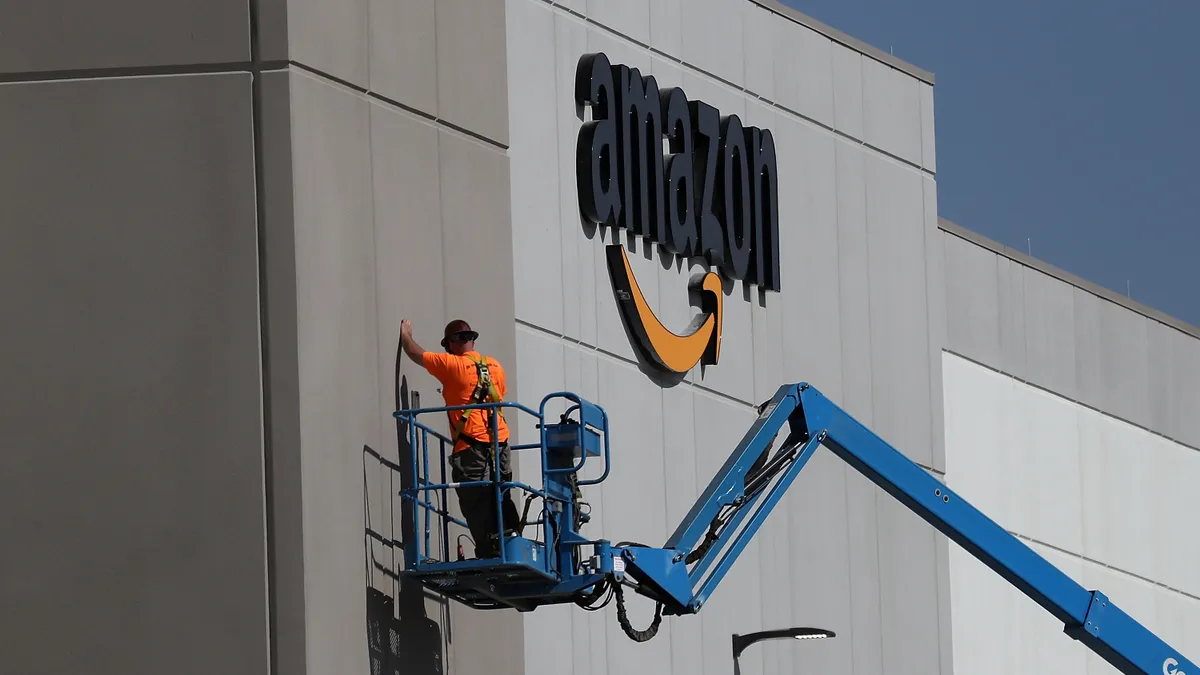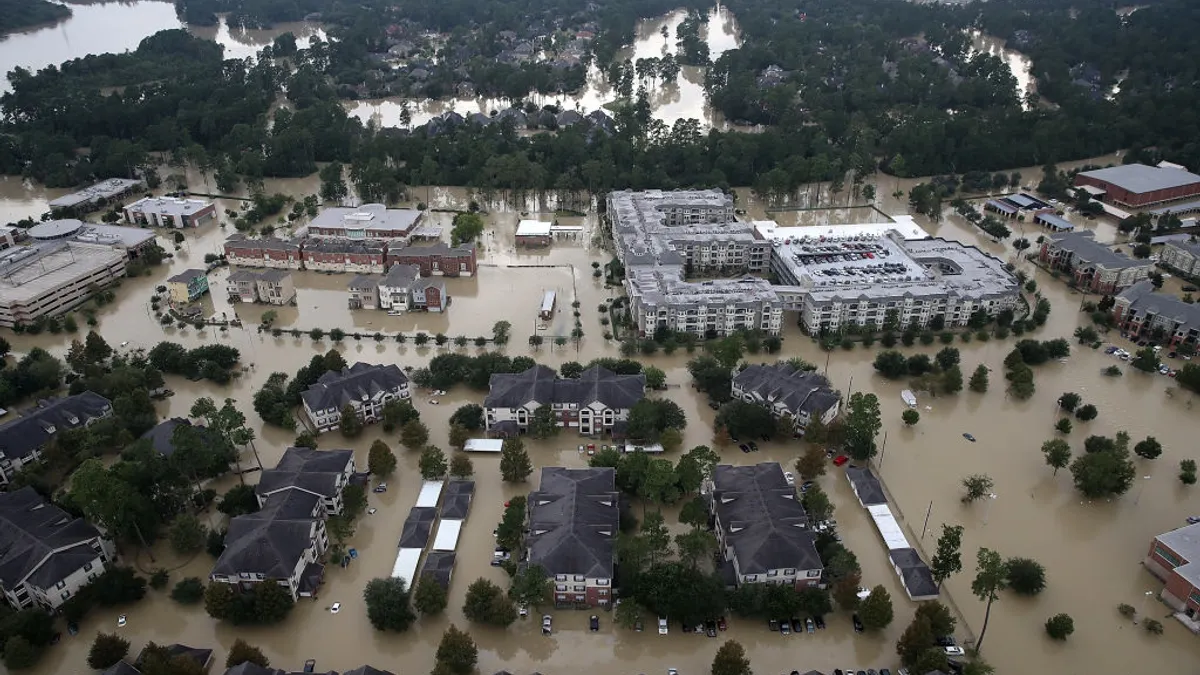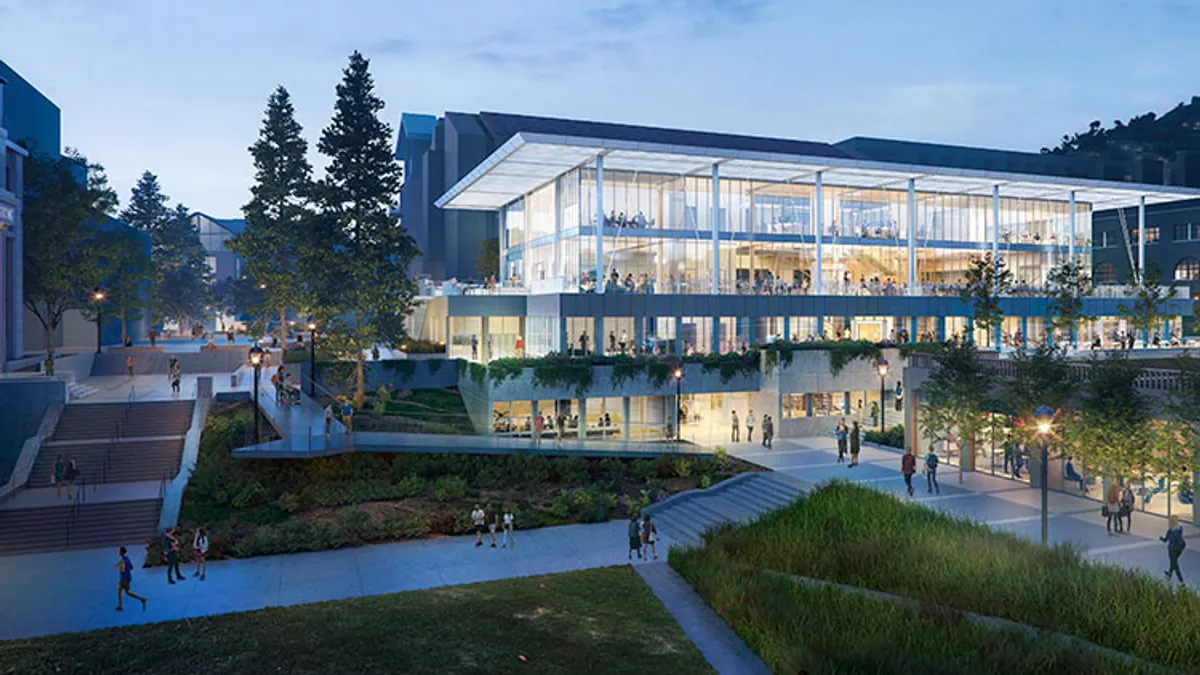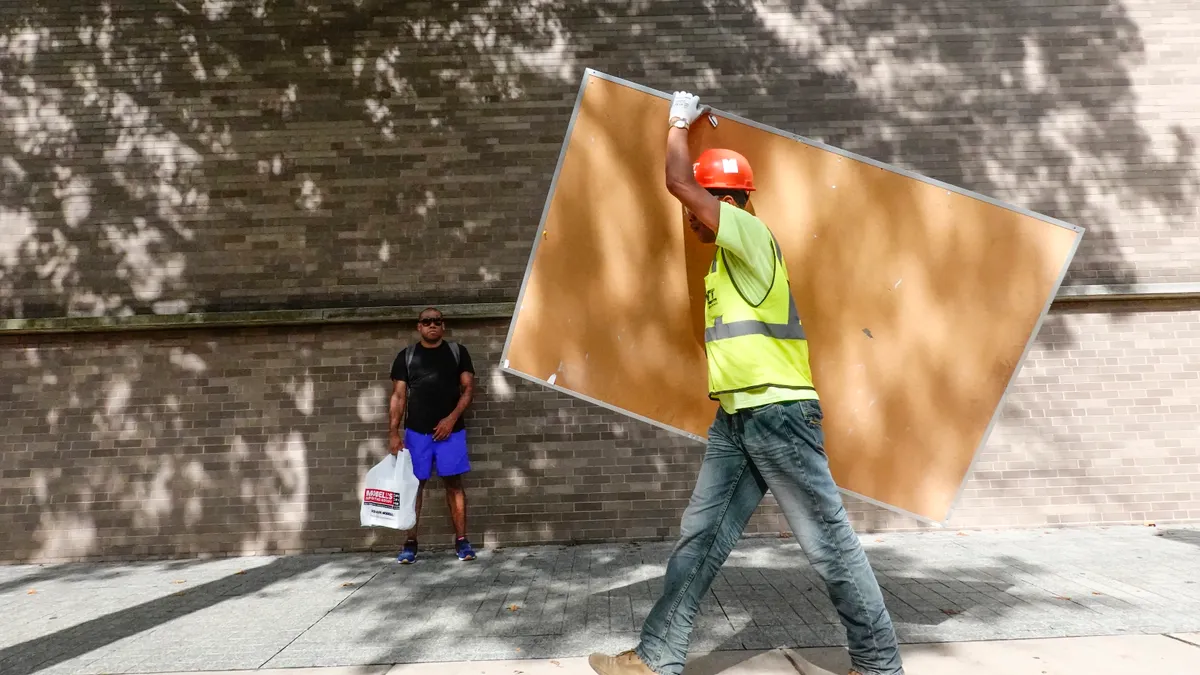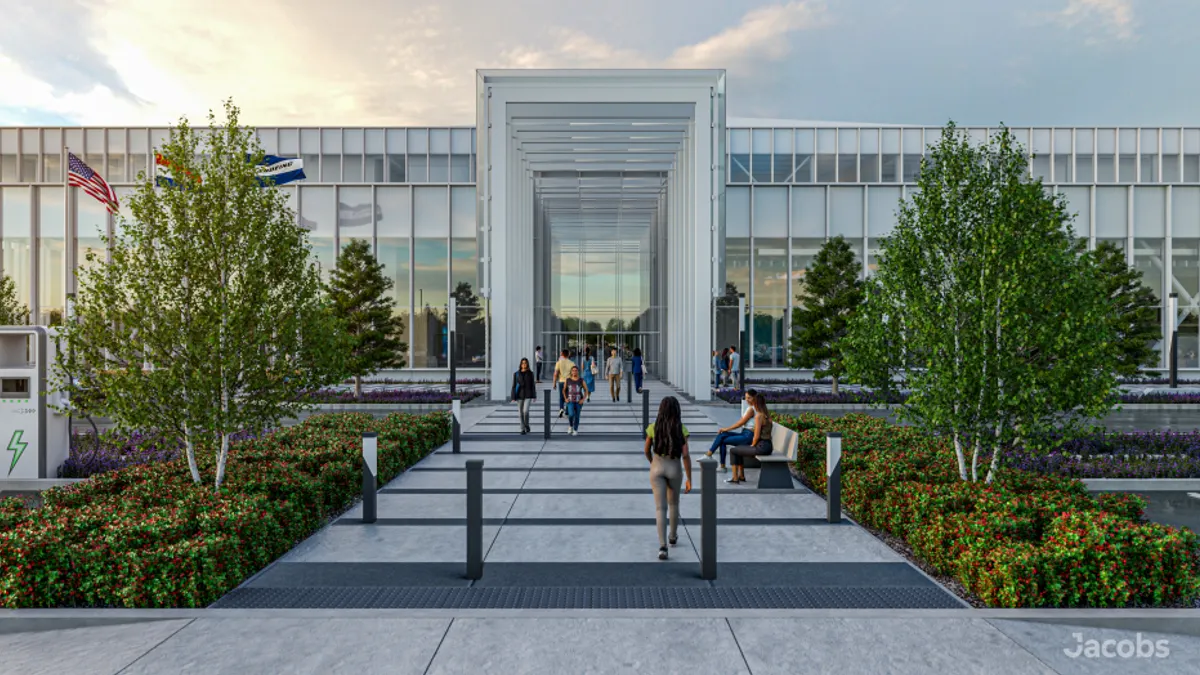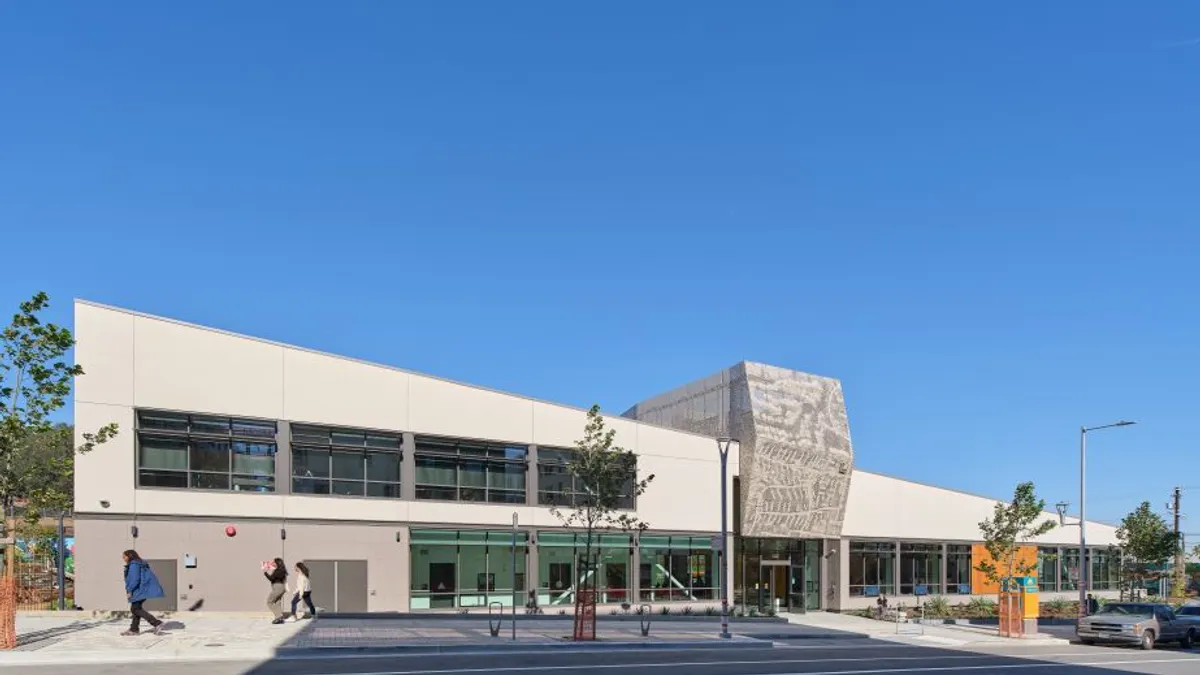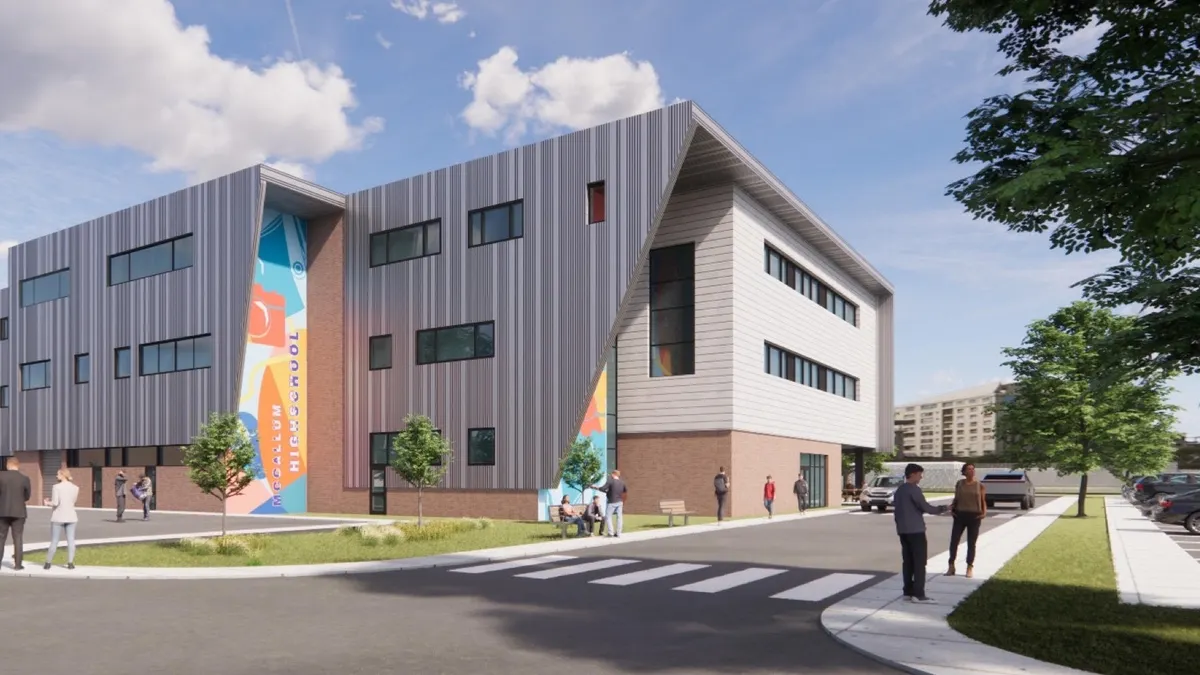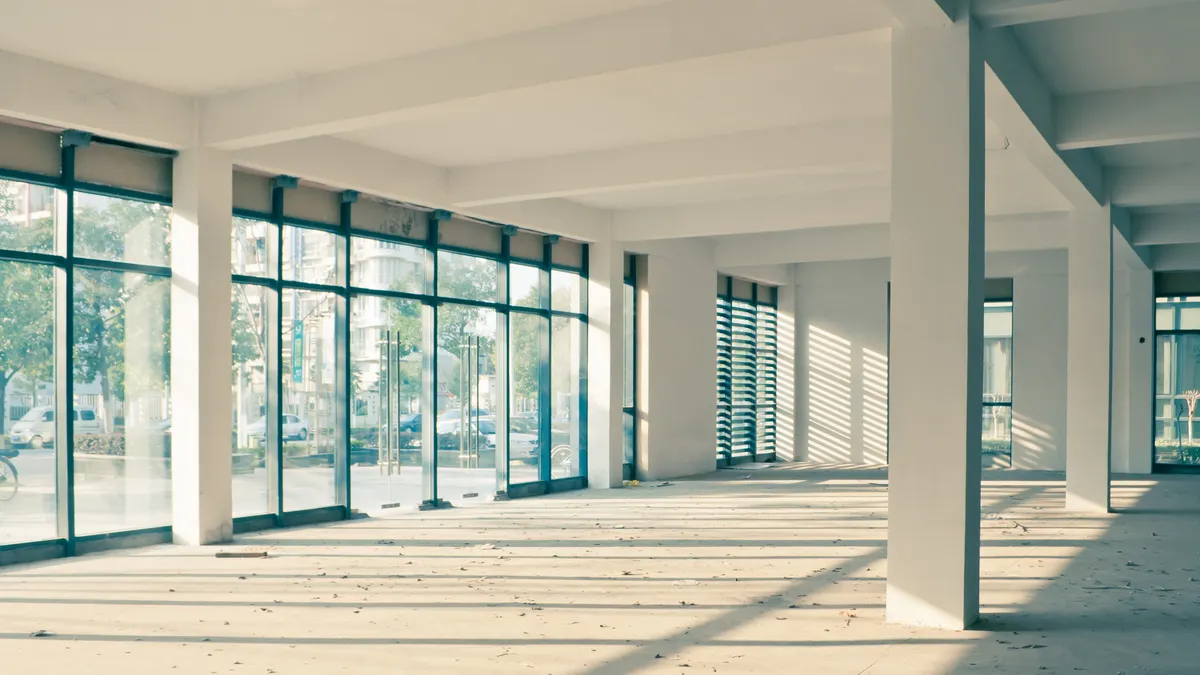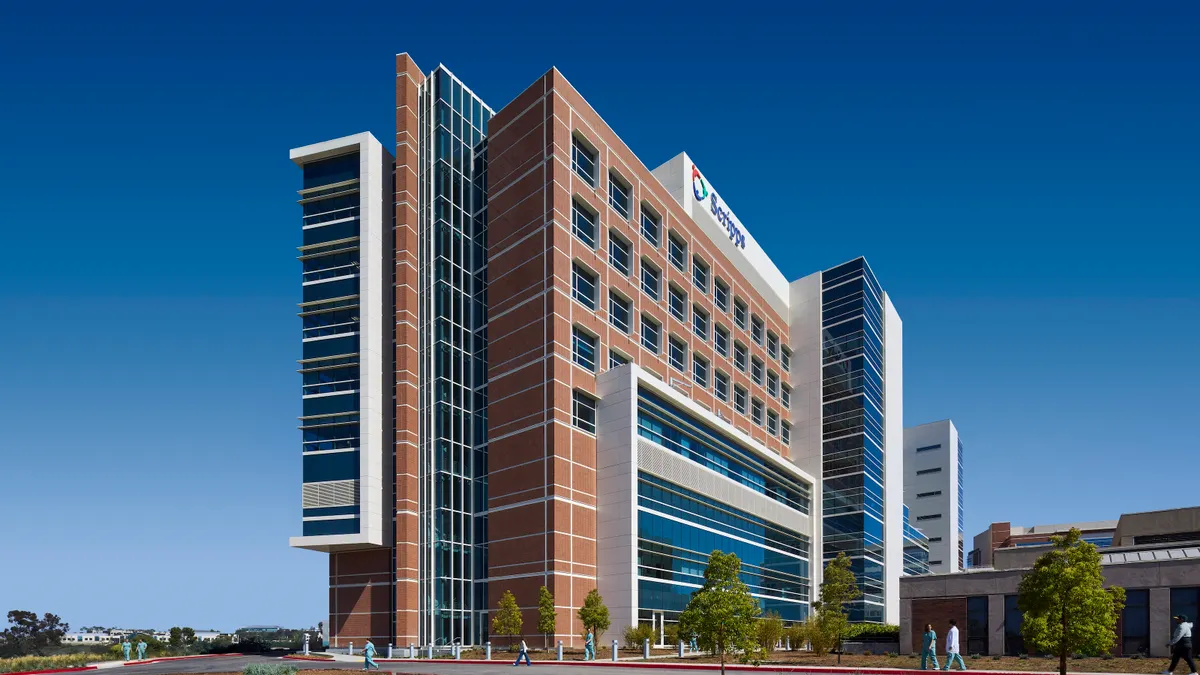Amazon and RC Andersen are not the first high-profile client and general contractor to grapple with racism on a North American jobsite.
Since April 27, up to eight nooses have been found on a 3.6 million-square-foot Amazon fulfillment center jobsite that RC Andersen is building in Windsor, Connecticut.
While the FBI is investigating the incidents as hate crimes, and Amazon has shut the site down twice while condemning hate at its facility, whoever is responsible for the nooses still hadn't been identified at press time.
The developments follow at least 20 similar cases at construction sites across the U.S and Canada since last spring.
How Fairfield, New Jersey-based RC Andersen and Amazon are handling the situation, and the apparent lack of leads in the case, illustrates the challenges general contractors and their clients face in confronting social issues in the middle of a sprawling, active construction site where hundreds of workers from a multitude of companies have access every day.
"The Amazon project in Connecticut is a big jobsite," said Chris McFadden, vice president of communications and marketing at New York-based Turner Construction Co., which dealt with several hate incidents on jobsites last year, including the discovery of a noose at a Facebook data center in Iowa on June 19, the day that commemorates the end of slavery in the U.S.
"You start looking into it and say, 'When did this happen? What trades were in the area, who had access?'" McFadden said. "Pretty soon, you realize there were 900 people on site, and all of them had free access."
McFadden said adding more cameras to jobsites is crucial in tracking down perpetrators.
"You put the cameras out there and you say, 'OK, here's five people that were in the area between the last occurrence and this one,'" McFadden said. "That's how you get from 900 to five pretty quickly."
Amazon has stressed in media reports that hundreds of workers have access to the site, and that the nooses were discovered in places where there weren't security cameras. The eighth noose was discovered on Wednesday, after the site was shut down the first time to beef up security and install more cameras.
Amazon now re-evaluating RC Andersen
Amazon issued a statement Friday saying it would now take a closer look at its general contractor on the job, which it previously confirmed to Construction Dive as RC Andersen.
"We are assessing the performance and management of our developer and general contractor to ensure they are maintaining the standards expected of an Amazon project," said Kelly Nantel, director of national media relations for Amazon, in a statement emailed to Construction Dive. "We will make any appropriate changes to this project, including reevaluating our partnerships, to ensure these high standards.”
RC Andersen did not respond to requests for comment.
But while Amazon has repeatedly condemned the nooses on the jobsite and now seems to be pressuring RC Andersen to do more about them, it has not addressed questions from Construction Dive about noose pendants and earrings for sale on its website, and whether it has a policy regarding the sale of hate symbols.
The firm removed Nazi-related items on its site in 2018, according to the New York Times. But it was still struggling to deal with controversial product listings as recently as last summer, according to Adweek.
'It keeps happening'
Having rhetoric around combating racism and actually doing something about it are two different things, said Sean Jointer, the Black owner of Righteous Enterprise Construction in Indianapolis.
"So the people who are building these projects may shut down for a day or two, but then nothing else changes, so it keeps happening," said Jointer. "These companies need to be bold and stand for what's right, because otherwise you don't stand for anything except the almighty dollar."
Latisha Pirtle, the Black owner of Indianapolis-based MonaVation Construction, who has endured racist vandalism on her jobsites where swastikas and the words "White Power" were spray painted near ripped out electrical work, said the image of a noose on a jobsite elicits strong feelings.
"It makes me angry. The construction industry right now is really, really big on incorporating diverse businesses into their contracting process, and that's fantastic," Pirtle said. "But if alongside those opportunities, tradespeople are subjected to racism on the back end because of a culture of accepted racial abuse, then that's unacceptable."
Other steps
Beyond increasing security and the number of cameras on site, others in the construction industry say that one of the most effective tools for combating racism on jobsites is to draw a bright line for workers on a project.
"We took the first step last year to just simply say we have zero tolerance for racism at Rosendin with our subs," said Stephanie Roldan, director of lean culture at San Jose, California-based Rosendin Electric, one of the largest electrical contractors in the country.
Roldan, who is Mexican-American, has been an outspoken advocate for confronting racism in the industry after experiencing it firsthand on jobsites since early in her career. But she said in the insular world of subcontracting, being seen as a whistleblower on these incidents can sometimes equate to being blacklisted for future jobs.
"You've got to have that zero tolerance stance, so that people will speak out," Roldan said. "Otherwise, people wonder if they are going to have to sacrifice their careers, in order to do the right thing."
Indeed, at Turner, the company has written anti-harassment policies into its contracts with subs, posts its Bias and Harassment Policy at the top of its subcontractor webpage and has barred workers from current and future jobsites who are proven to engage in hateful behavior.
"If you communicate up front the expectations of behavior so it's clear what will happen when someone does something counter to those expectations, people do come forward," McFadden said. "They don't want to get shut down and miss a day's pay."
RC Andersen, however, has largely stayed silent about the hate crimes happening on its jobsite. Roldan said the contractor's lack of public response is a lost opportunity to get in front of the issue.
"They absolutely should be showing leadership on this," said Roldan. "If they believe that their workers should have a safe workspace, then they should be very clear that safety means more than just whether or not you physically go home at the end of the day. It has to include workers' mental and emotional safety, too."



